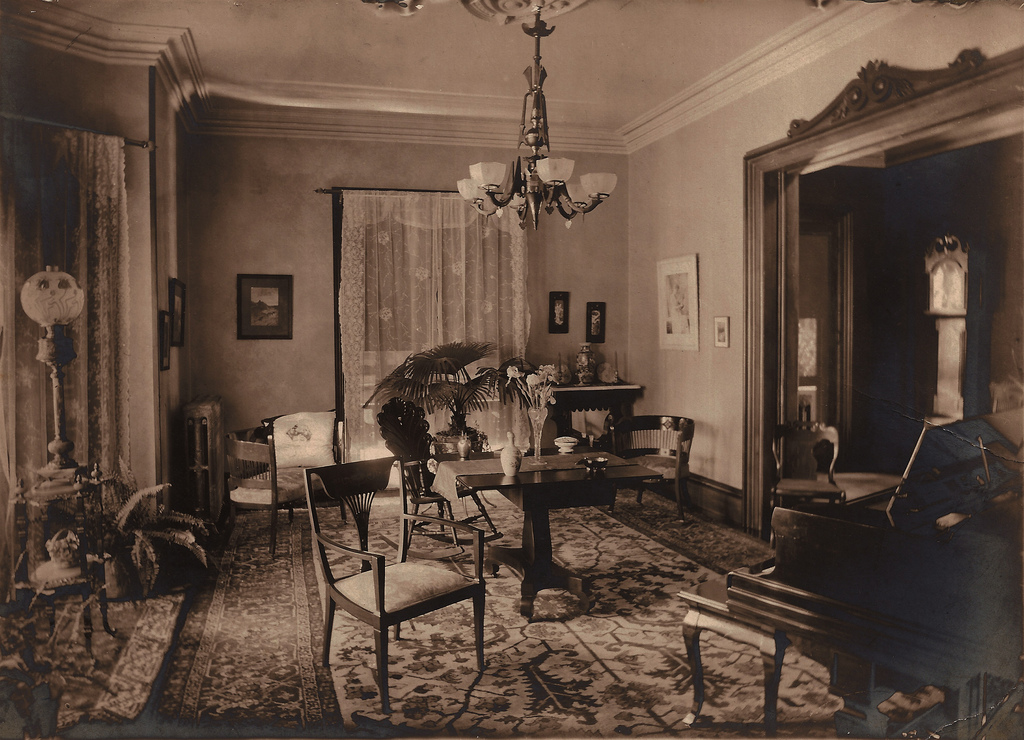As I’ve written before, my grandmother’s apartment holds a particular place in my head. I keep revisiting the floor plan, and the room that glows brightest in my memory is the kitchen. The kitchen, I think, is the quintessential center for grandmothers, mothers, and female authority in general. And while my grandmother was not maternal, not soft, rarely kind, she haunts the kitchen, vapors of past dinners clinging to her permed hair and her stained apron.
My grandmother was a great cook, and she taught me how to make braised spare ribs, and stir-fried potato threads, and cold cucumber salad. She bullied me for not cooking for my parents, and when I said that I knew how to cook, that there were plenty of recipes I could follow, she told me that cooking meant cooking from memory.
I know of two kinds of Chinese cooks, the kind that lets the heat of the stove do the cooking—a sort of wham, bam, thank you ma’am style that my father excels at— and the kind that painstakingly pokes and prods at the food, cajoling the meat and the starches to release their inner fragrance. Congruent with her personality, my grandmother was the latter. She would not let the dish hit the plate until every ingredient sang a specific tune, cohering in a standard harmony.
My grandmother had been cooking last summer when she suddenly vomited blood into the kitchen sink. The kitchen never really smelled clean before. The odor of rotting wood and mildew and vegetable scraps could only be masked by fresh food. So I can’t imagine how the kitchen smelled after she was rushed to the hospital. But that is my brother’s memory, not mine. He was the one in the other room, waiting for lunch, while I was still in America, my visit a week away because I had to attend my college reunion.
So my sharpest memory of the kitchen, the one that scalds me when I try to fall asleep at night, is of my grandmother frying eggplant fritters. I was seven and I didn’t like eggplant, but I ate every piece she brought out to me in the living room because I knew she hated picky eaters. This marks a moment for me, a grey space when I mistakenly thought I had figured out how to please my grandmother, how to seize her approval. Afterwards, I came up to her in the kitchen and proudly declared that even though I thought the fritters were gross, I hadn’t been picky.
“Well, you could have left me one, then,” she said, and then she showed me the fresh oil burns on her hands.
~
For almost a year, I believed that my grandmother’s apartment was gone forever, sold for millions of RMB, and emptied of all its oddities and odors. In this time, I could not stop revisiting the rooms in my head. I’ve drawn the blueprints, learned to spell the characters in the address, and written down each memory that presents itself to me. The images are surprisingly sharp, but they won’t always be–that’s my driving force to turn memory into paper, into a transcribed photograph. I told myself that in trying to describe a photograph that never existed, I was preserving more than a piece of film could possibly capture. That after all my work of remembering and rewriting, my grandmother’s apartment had taken on a three-dimensional shape, one that photographs would have only flattened.
But, after a conversation with my mother, I found out that they decided not to sell the apartment. My aunt is keeping it in the family; renovations will begin in the summer. Of course, the first thing I asked for was that photographs be taken of each of the rooms. My mother promised to pass the message on to my aunt.
“But the rooms are empty,” my mother texts me. “Is that alright?”
I text back, “Yes.” All I really need are the shapes of the rooms; I’m perfectly capable of filling in the rest from memory.




